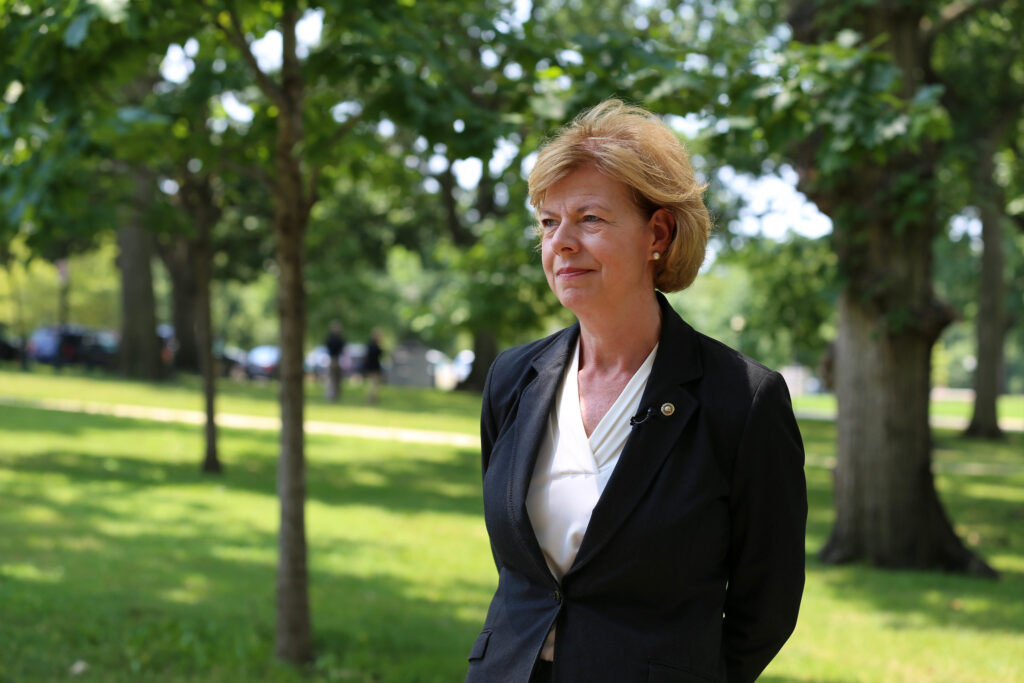Health care
OPINION: Tammy Baldwin delivers for mental health care and suicide prevention with “9-8-8” lifeline

In this day and age, everyone knows someone experiencing a mental health issue — or is dealing with one themselves. It’s a crisis that’s become ubiquitous in 21st century America, and it’s clear we need to be devoting more attention and resources toward getting people the help they need.
That’s particularly the case when considering the worst of outcomes: suicide. Rates of suicide have largely been on the rise for the better part of the last 20 years. It’s now one of the leading causes of death in the United States. In 2020 alone, more than 45,000 people died by suicide.
In Wisconsin, a 2019 Wisconsin Department of Health Services (DHS) study found that the suicide rate increased by 40% between 2000 and 2017. For Wisconsin residents ages 45-54, the rate more than doubled. From 2013 to 2017, veterans accounted for almost one in every five suicide deaths. Among young people, ages 10-19, suicide was the second leading cause of death. And LGBTQ youth are three times more likely to have considered suicide. In 2018, 887 people in Wisconsin died by suicide.
This is such an immense amount of tragedy that it’s difficult to process. Thousands and thousands of lives are affected, families and friends forever carry these losses with them.
This has become a genuine crisis. And as a matter of public policy, it is going to require a multi-faceted approach for years and years to properly address the scope of tragedy occurring here. There is no one solution here. It will take comprehensive action.
Of course, that type of action has been hard to come by in this era of Republican obstruction and institutional gridlock. But one very important milestone was just achieved, and a legislator from Wisconsin played a central role in making progress.
In late 2019, Sen. Tammy Baldwin introduced legislation to create a three-digit suicide prevention hotline. She joined senators from both parties to introduce the bipartisan National Suicide Hotline Designation Act, stressing the need to “make it as quick and easy as possible for Americans in crisis to get the help and support they need.”
That national suicide prevention and mental health crisis hotline launched on Saturday, July 16. The number “9-8-8” is now the number people can dial to reach the National Suicide Prevention Lifeline. This simplifies and streamlines the process for people to get the help they need in moments of crisis.
“We need to do everything we can to help those in mental health crises and prevent suicide, and that means improving the tools and resources they have when they are suffering,” Baldwin said in a release marking the launch of the hotline. “After working to get my bipartisan legislation signed into law and ensure funding for the implementation, I am so proud to see this quick and easy three-digit phone number launch so Americans in crisis can get the timely help and support they need. This will save lives.”
Research has shown that suicides are failry impulsive acts that occur during short-term crises, and that 70% of people made the decision to harm themselves did so within an hour of a suicide attempt. This is also why gun control is such a key component of reducing suicides, as more than half of all suicides in the nation — nearly 25,000 in 2020 alone — happen with a firearm, and things like universal background checks and “red flag” laws that are often associated with mass shootings could also greatly help prevent suidide deaths by firearm, as well.
Giving people one more option to access support will save lives. This will connect people more directly to existing services, and will bolster additional options to provide mental health care. It also gives people an option other than calling 9-1-1, which was not designed to meet the challenges of mental health care.
Karen Timberlake, secretary-designee of the DHS, said in a press conference alongside Baldwin that there is a growing need for mental health help, and calls to suicide crisis lines have increased in recent years, and that it will be important for people to understand that this resource is available. One projection from DHS said they expected a 93% increase in calls in the first year of the 9-8-8 service, and that would grow from the roughly 29,000 calls in Wisconsin to the National Suicide Prevention Lifeline in 2021.
Baldwin’s work on this issue has been admirable, and she deserves praise for what she’s been able to do to work across the aisle and achieve meaningful results on such an important issue. The 9-8-8 Suicide and Crisis Lifeline is an important step forward in addressing the nation’s mental health crisis. As she said, “this will save lives.”
Dan Shafer is a journalist from Milwaukee who writes and publishes The Recombobulation Area. He previously worked at Seattle Magazine, Seattle Business Magazine, the Milwaukee Business Journal, Milwaukee Magazine, and BizTimes Milwaukee. He’s also written for The Daily Beast, WisPolitics, and Milwaukee Record. He’s won 13 Milwaukee Press Club Excellence in Journalism Awards. He’s on Twitter at @DanRShafer.
